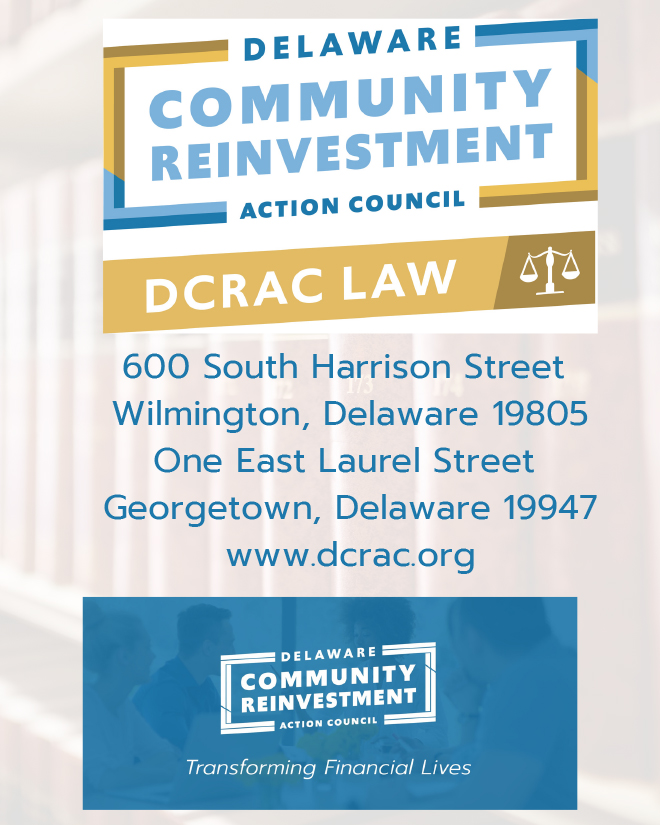Probate Basics You Need To Know
 By Jaclyn Quinn, Esq.
By Jaclyn Quinn, Esq.
Deputy Director at DCRAC
Probate is one of those looming unknowns. We hear about it, we know it has to do with an estate once someone passes away, and it simply sounds scary and expensive. I’m writing today to break down the Probate process into manageable steps so that if you or a loved one become involved with Probate, you will have some background information that will make you feel more at ease.
To put it simply, Probate is the process by which a decedent’s property is gathered, and then distributed. If the decedent had a Will, then the Will names an Executor, who is responsible for handling the probation of the estate. If there was no Will, then the Register of Wills appoints an Administrator, who has the same duties as an Executor. This person is commonly referred to as the Personal Representative.
To start the process, the next of kin (if there was no Will) or executor named in the Will goes to the Register of Wills Office in the county where the decedent lived and presents the death certificate and the Will to open the estate. There are other opening documents that are also filled out and submitted at that time, which gives the Register’s office an idea of how much money the estate will have and who may be involved. Costs for opening an estate are typically around $200.00. Once the estate is fully opened, the Personal Representative is given letters that name him or her as such. Those letters are presented to financial institutions and anyone else who requires one in order to administer the estate.
One of the first steps the Personal Representative takes once the estate is open, is to also open an estate bank account. This is commonly done at the bank where the decedent had an account, so that any funds could be placed into the estate account and used to pay valid expenses of the estate.
Within 90 days of opening the estate, an Inventory is due, which lists all assets owned by the decedent at the time of his or her passing. This includes real estate, bank accounts, personal items, and any other property.
Within eight months of the date of death, all creditors owed money by the decedent are required to submit a written claim for payment. If the estate has funds to pay these creditors, they are paid in order of priority set out by state statute. During this time, the Personal Representative continues to gather documents, makes sure matters are resolved, and determines whether or not a final tax return and estate tax return are required.
Finally, after at least eight months have passed and once all claims are settled, the personal representative files a First and Final Accounting to demonstrate all of the estate’s finances– from bills paid, to income received– were accounted for and handled properly. Once the accounting is approved and closing costs are paid, the Personal Representative is authorized to distribute funds to any remaining beneficiaries and then close the estate bank account. Closing costs for an estate are based on the total amount of probate assets. Currently in New Castle County, this figure is 2% of net probate assets.
Yes, sometimes there are nuances or curveballs that complicate the Probate process. But overall, it is manageable as long as the Personal Representative takes action and gets down to business. Some Executors/Administrators prefer to hire an experienced attorney to either assist with the process, or to actually perform the role of probating the estate. In this event, the attorney will charge an agreed-upon hourly rate, or a percentage of the total estate prior to distribution. The average rate in Delaware is between 3.5% to 7% of the estate.
Overall, when it comes to Probate, it is advisable to act as soon as practical and to take the job seriously. This is one of those matters that will not go away on its own. For more information or a consultation regarding your Probate matter, contact Jaclyn Quinn, Esq. at DCRAC LAW, 302-298-3251 or [email protected].


